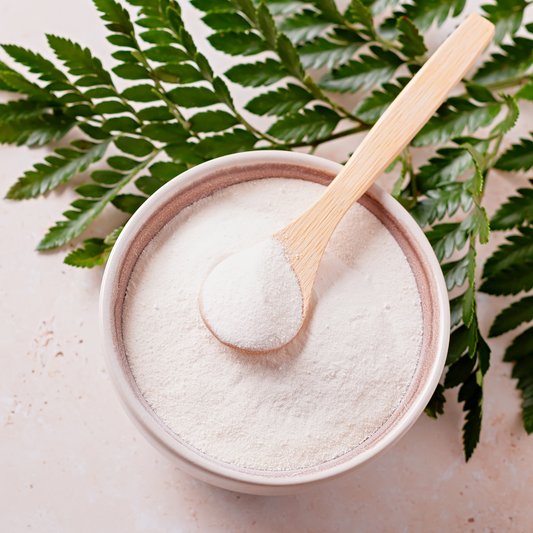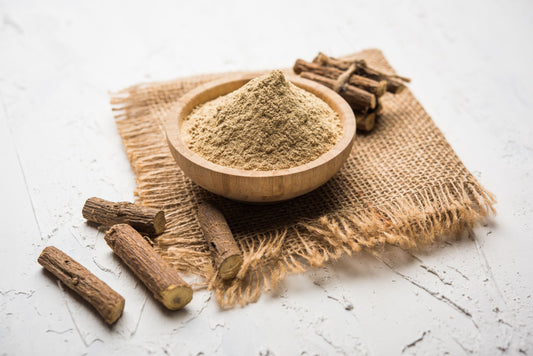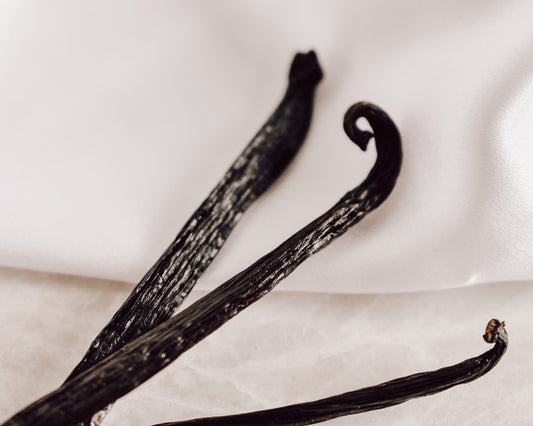Monkfruit is a great alternative sweetener for those with GERD. Discover how this natural sweetener can help you manage your symptoms and improve your health.
If you suffer from gastroesophageal reflux disease (GERD), you know how challenging it can be to find foods and drinks that won't trigger your symptoms. Monkfruit, a natural sweetener, may be a great alternative for those with GERD who want to satisfy their sweet tooth without aggravating their condition. Keep reading to learn more about the benefits of monkfruit for GERD and how to incorporate it into your diet.
What is GERD?
Gastroesophageal reflux disease (GERD) is a chronic digestive disorder that occurs when stomach acid or bile flows back into the esophagus, causing irritation and inflammation. Common symptoms include heartburn, regurgitation, and difficulty swallowing. GERD can be managed through lifestyle changes, medication, and in severe cases, surgery.
Why is sugar a problem for GERD sufferers?
Sugar is a problem for GERD sufferers because it can increase the production of stomach acid, which can exacerbate symptoms. Sugary foods and drinks can also weaken the lower esophageal sphincter (LES), the muscle that separates the stomach from the esophagus, allowing stomach acid to flow back up into the esophagus. If you’re still not convinced that sugar is not good for GERD, A team of Vanderbilt researchers recently reported in the American Journal of Gastroenterology that: “Reduced consumption of simple sugars improved esophageal acid pH, the number of reflux episodes, and the hallmark symptoms of GERD: heartburn and regurgitation.” This is why finding a safe and effective alternative sweetener, like monk fruit, can be very beneficial for those with GERD.
What is monk fruit and how is it different from other sweeteners?
Monk Fruit, also known as Luo Han Guo, is a small green fruit native to southern China. It has been used for centuries in Traditional Chinese Medicine as a natural sweetener and remedy for various ailments. Unlike other sweeteners, monk fruit contains zero calories and has no effect on blood sugar levels, making it a great option for those with diabetes or trying to lose weight. It also does not have the bitter aftertaste that some other alternative sweeteners, like stevia, can have.
How does monk fruit help manage GERD symptoms?
Monk Fruit is a safe and effective alternative sweetener for those with GERD because it does not trigger acid reflux symptoms like traditional sugar and other sweeteners can. It also has anti-inflammatory properties that can help reduce inflammation in the esophagus and stomach lining. Additionally, monk fruit is low in FODMAPs, which are fermentable carbohydrates that can exacerbate digestive issues in some people, including those with GERD. Incorporating monk fruit into your diet can be a helpful tool in managing GERD symptoms.
Studies have suggested that monk fruit extract possesses the ability to suppress the proliferation of colorectal and throat cancer cells by inducing apoptosis, a process of programmed cell death. This remarkable attribute makes it also a promising candidate in fighting against these types of cancer.
Tips for incorporating monk fruit into your diet.
If you're interested in incorporating monk fruit into your diet as a safe and effective alternative sweetener for GERD, there are a few tips to keep in mind. First, start by using small amounts and gradually increasing as needed. Monk Fruit is much sweeter than sugar, as much as 200 times sweeter according to the FDA, so a little goes a long way. Second, look for products that are made with pure monk fruit extract, rather than blends that may contain other sweeteners or additives. Worry not, our Heartburn Elixir uses pure monk fruit extract for a sweet & delicate taste. Finally, experiment with using monk fruit in different recipes, such as baked goods, smoothies, and hot beverages, to find what works best for you. I am a big advocate for monk fruit over sugar, so check out more under the learn section and stick around by subscribing to the email list for future delicious, GERD-friendly dessert recipes!
References:
Liu C, Dai L, Liu Y, Rong L, Dou D, Sun Y, Ma L. Antiproliferative Activity of Triterpene Glycoside Nutrient from Monk Fruit in Colorectal Cancer and Throat Cancer. Nutrients. 2016; 8(6):360. https://doi.org/10.3390/nu8060360
Gu C, Olszewski T, King KL, Vaezi MF, Niswender KD, Silver HJ. The Effects of Modifying Amount and Type of Dietary Carbohydrate on Esophageal Acid Exposure Time and Esophageal Reflux Symptoms: A Randomized Controlled Trial. Am J Gastroenterol. 2022 Oct 1;117(10):1655-1667. doi: 10.14309/ajg.0000000000001889. Epub 2022 Jun 21. PMID: 35973185; PMCID: PMC9531994. https://pubmed.ncbi.nlm.nih.gov/35973185/











1 comment
I’m so glad that I’ve found your article. It helps to having sweet things to eat,and for baking.thank you so much.